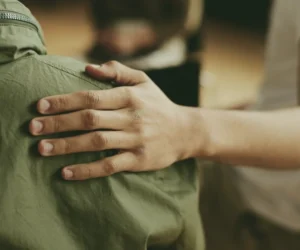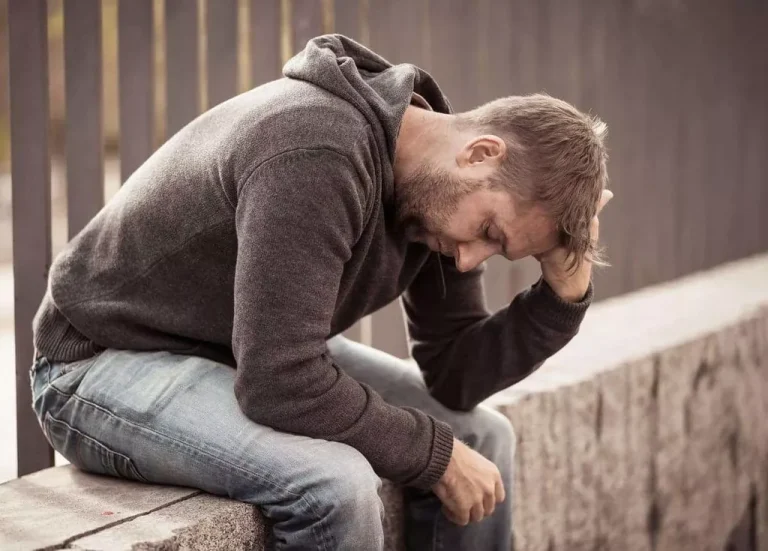15 Things I’ve Learned Being The Only Sober Person In The Room

Alcohol has become peripheral – it has faded into my background. However, in the early days of living your life sober, it can be easier and safer to avoid those alcohol-saturated social situations until you’ve built up some confidence with https://ecosoberhouse.com/article/blood-thinners-and-alcohol-risks-and-side-effects/ your new habits. You want to make life as easy on yourself as you can so avoid putting yourself under too much stress. Build your confidence and gradually challenge yourself by putting yourself bit by bit outside of your comfort zone.

How to Find Sober Friends

Pile on some sobriety struggle, and it’s a recipe for madness. I found myself planning little outings when I got sober because I needed to figure out what it meant to have fun again. So much of this list is not just about finding things to do, but treating the underlying causes of extreme boredom in sobriety. But also, don’t be afraid to put yourself out there and get involved in activities around your community. And while these things might sound serious and scary, it’s important to note that it’s one piece of a larger puzzle. A therapist can help treat the underlying symptoms through therapeutic modalities like Cognitive Behavioral Therapy or trauma-processing techniques.
- Alcoholics Anonymous, for example, has more than 2 million members in the United States, making it one of the most well-known groups for people recovering from addiction.
- Keep in mind that self-help strategies are helpful tools, but you may need additional help to remain sober long-term.
- A personalized relapse prevention plan is essential for maintaining sobriety, as it helps individuals identify triggers, develop coping strategies, and set achievable goals.
- He insisted that he wasn’t drinking in social media posts around the event, but has since revealed that he did enjoy a heavy night out where he ‘didn’t know how I got home’.
- If left unchecked, anger can have a negative impact on your health and your lasting sobriety.
Withdrawal Symptoms
Make a list of the ways drinking has negatively impacted your life. You may want to reflect on this list when you feel cravings to drink. By addressing emotional triggers head-on, recovering alcoholics can reduce the likelihood of relapse and maintain their commitment to a sober life. Abstinence from alcohol has been proven to be the most effective way to maintain sobriety, especially for recovering alcoholics. I’ve spent the last seven years researching and understanding alcoholism, addiction, and how people get sober. Additionally, I examine the way mental and physical health as well as our relationships with others impact the reasons people drink and their role in maintaining sobriety long-term.
Build a strong support network.
- “The sober curious movement has led people to see the unhealthy habits that can go hand in hand with alcohol consumption,” she says.
- A mental health professional can help you cope with some of the challenges you’ll face on your path to sobriety.
- With the right support and strategies in place, individuals can confidently participate in social events without compromising their sobriety and can stay sober even without AA, for example.
- Sobriety is a general term for staying away from mood- and mind-altering substances, though there is no commonly agreed-upon medical definition in terms of what sobriety means.
- Instead, focus on things, experiences, and activities that will support your new, healthy lifestyle.
By Michelle PugleMichelle Pugle, MA is a freelance writer and reporter focusing on mental health and chronic conditions. As seen in Verywell, Healthline, Psych Central, Everyday Health, and Health.com, among others. Enjoy life beyond alcohol consumption, utilize the buddy system, celebrate the benefits of sobriety, and carry reminders. Focus on enjoying non-drinking activities and order non-alcoholic beverages. Being sober also means being present in every moment without clouded judgment or impaired senses due to alcohol consumption.
- My favorite free tool is the 30 Reasons Why People Drink checklist.
- Attend concerts, art exhibitions, sporting events, or volunteer activities focusing on shared interests or experiences rather than drinking.
- One study found that 68% of people treated in a detox unit experienced moderate alcohol withdrawal symptoms.
- But it’s better than drinking to fit in and risking your recovery.
You may also need to change your route to work or home in order to avoid any triggers, or people, places, or things that make you want to use drugs or drink again. The more tools you have for identifying triggers, coping with stress, and managing your new sober life, the easier you’ll prevent relapse. It felt like a slap in the face when people were drinking around me, and I was trying to stay sober.
Substance Use Treatment
- Consider reaching out to a vocational rehabilitation counselor or career coach to help you update your resume, practice job interview skills, and locate jobs that match your skills and experience.
- Although not as well known a solution as AA, there are several medications that can help you quit drinking.
- This article provides some helpful tips on how to address such inquiries effectively.
- In the meantime, the Soberish community is here to support you and help you get there.
- Before attending a social event, remember why you chose not to drink alcohol.
One study found that 68% of people treated in a detox unit experienced moderate alcohol withdrawal symptoms. You can expect certain alcohol withdrawal symptoms such as sleep disruption to occur, though some people can experience seizures and other severe symptoms. Some studies find that this structure, along with a start date for sobriety and milestones, is important to some people in recovery.
Emotional Triggers
It’s even harder if your loved ones don’t support your sobriety. If you quit drinking and experience any new or worsening mental health symptoms, please consider therapy. Aside from physical being sober around drinkers addiction, alcohol also impacts the reward system within a person’s brain. This means that many people continue to have drinking urges for months, or even years after quitting.
And the more I felt them, the more intense and blinding they would get. If you have a willing friend or family member, take them along. That being said, drinking FOMO is real and must be dealt with. Sometimes admitting the truth to yourself is the first step.
I don’t know how to be around drinking people sober
Getting sober is like learning to walk again after a terrible accident. You should be able to go about living your life without drinking alcohol, but you feel utterly useless and have no idea what to do with yourself. A catch-all term for supervised programs designed to help you quit, rehab comes in many forms.